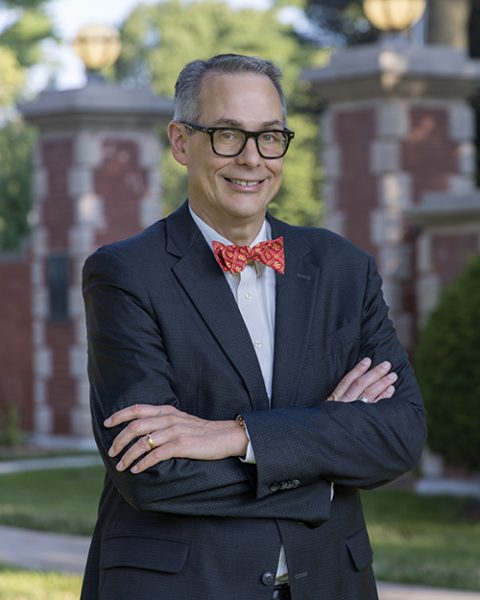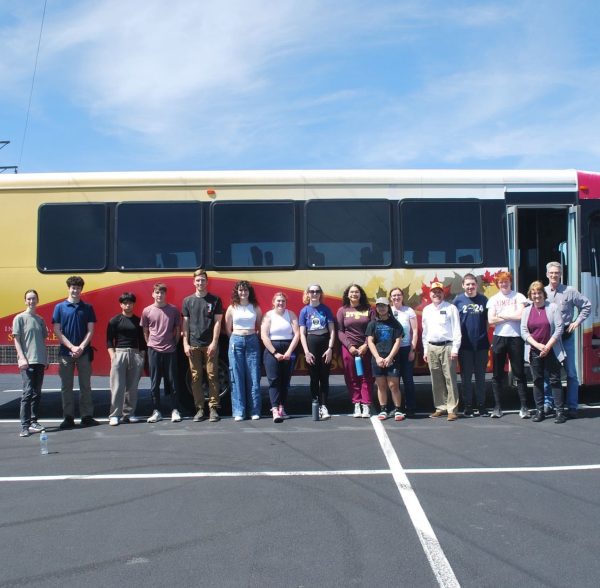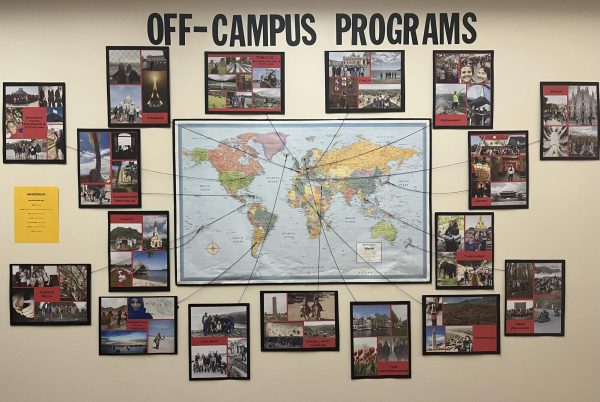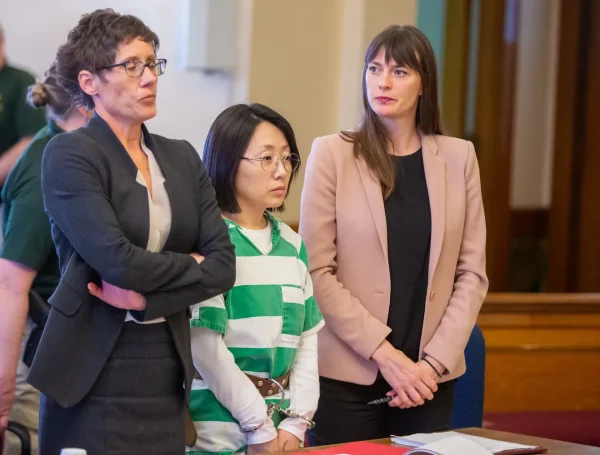Women in America lecture aims to empower women through art activism
March 10, 2015
The Simpson College community traveled around the world to explore different ways women empower themselves during a Women’s History Month lecture Wednesday evening.
Monica Jahan Bose presented her project titled “Rising up Against Climate Change: Storytelling with Saris” to Simpson students, faculty and the public.
According to Simpson’s website, the project “is a multi-layered collaborative art and advocacy project that uses woodblock prints on saris, writing, performance and video to address women’s empowerment in the face of climate change in Katakhali, Bangladesh.”
She works with women from Bangladesh, in the village where her mother was raised. In some ways, Bose’s empowerment project started before Bose was even born.
Her grandmother was married when she was seven-years-old. When she turned 12, she moved in with her husband and was not able to attend school.
However, Bose said, “She was a pioneer; she decided that was not a good life for her own daughters and she made sure none of her daughters were married young.”
Keeping her daughters unmarried was a difficult task, Bose said, because girls in rural South Asia start getting marriage proposals as young as nine-years-old. Despite this, her grandmother succeeded and Bose’s mother was the first girl from her village to finish high school.
Since then, the community has come a long way and has been transformed by women’s empowerment and literacy. Bose is dedicated to help these themes continue using an inventive method of advocacy.
During the presentation, Bose showed numerous paintings and multimedia projects she had created using symbols for literacy and climate. She was also active with an eco-empowerment project helping the village’s women.
“It came to me that it would be interesting to merge my advocacy work with my art,” Bose said.
She began working with 12 women from her ancestral village; women who had survived cyclones, participated in literacy programs and are slowly becoming more empowered in their community.
According to the project, Storytelling with Saris, the work of Bose and the 12 women include conducting writing workshops, creating woodblock prints on sari fabric, recording the women’s histories in journals, and documenting the project through photo and video.
“When [women] learn something, they teach it to their kids and it trickles down into the entire community,” Bose said.
Bose also said doing this work and promoting women’s literacy is critical for the community to survive climate change. She said if the water level rises even one meter, a large percentage of Bangladesh’s land would disappear.
“As a whole, they only contribute .06 percent to global carbon emissions,” Bose said. “Yet, it is the country that is going to be affected the most in terms of land loss and population displacement.”
Without immediate action, Bose said, the community could be dramatically affected within 40 years.
“Adaptation, documentation, and possible relocation. These are words that people in these costal climates do not want to hear,” Bose said. “People don’t want to give up their homes and their communities.”
She hopes her work and the work of other advocacy groups can help save these communities in Bangladesh. After working with these women, she used the work from the project to create unique performance installations, which has been exhibited in the United States, Bangladesh, France, Japan and India.
A few hours after the presentation, Bose performed one of these installations using water, saris, rice and writing. The performance speaks to the destruction of food, lives and heritage resulting from climate change.
Judy Walden, associate professor of history who introduced Bose, said, “What drew me to Monica’s work was the way she brings together seemingly disparate themes – climate change, literacy, women’s empowerment – and shows us in an innovative and visually striking way, how they are related.”
The presentation serves as the 25th annual Women in America Lecture and the second event being hosted for Women’s History Month. The theme for this year’s events is “Women Empowering Women.”
Other events taking place throughout the month include Simpson alum Kay Hertz, who will present the work of Days for Girls International, and Mary Ann Wise, who shares the story of Cultural Cloth and how rug-making empowers women in Guatemala.
Walden encourages students to take advantage of these events and programs taking place throughout the month. Projects like Bose’s are, according to Walden, “changing the world in small steps, one woman at a time.”














